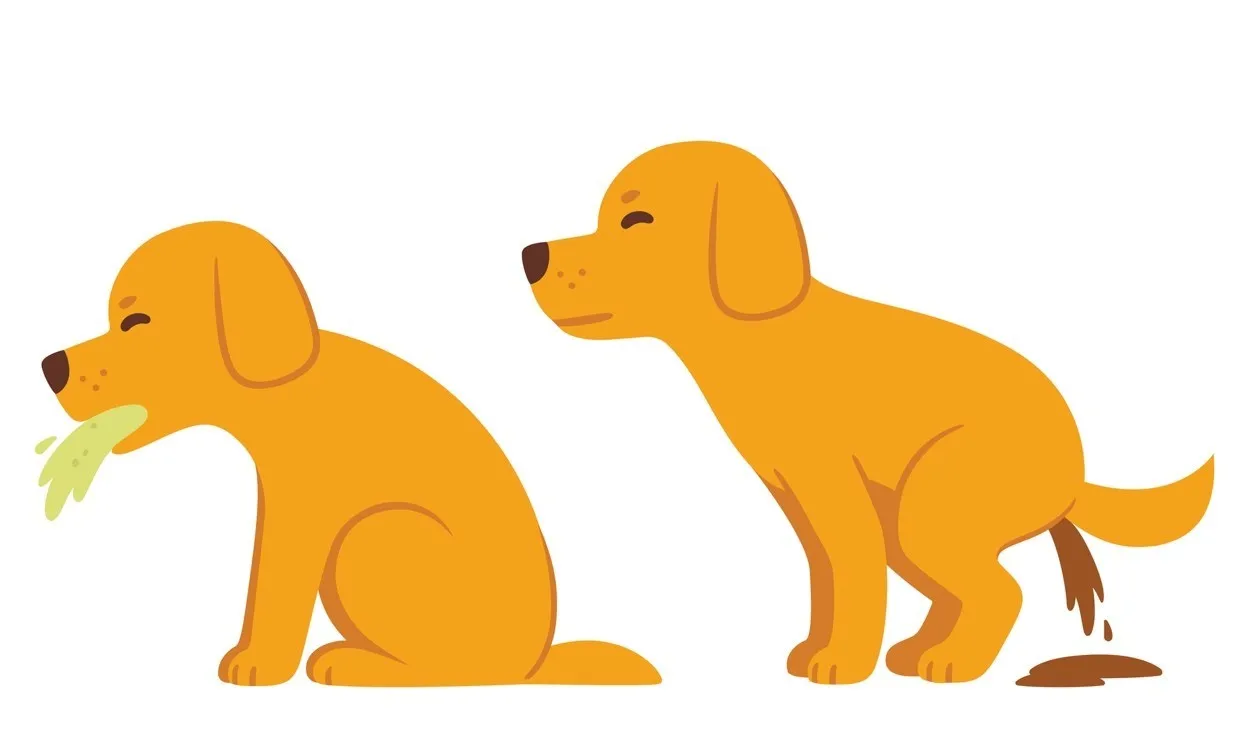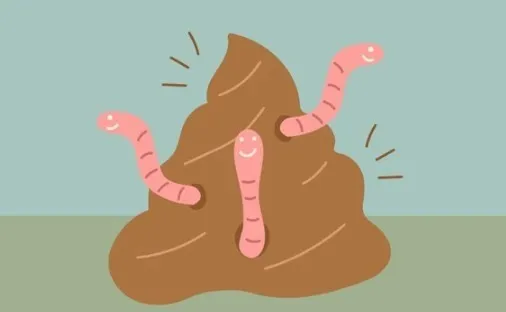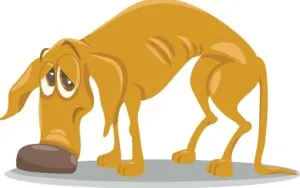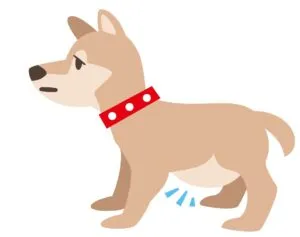Experiencing diarrhea is a common, often distressing, issue for dog owners, and while many factors can cause digestive upset, intestinal worms are a significant and frequently overlooked culprit. These internal parasites are an undeniable, albeit unpleasant, part of pet ownership that can seriously disrupt your dog’s health and development. Identifying the signs of parasitic infection early is crucial for your pet’s well-being and to prevent the potential spread to other animals. Fortunately, with proper veterinary guidance, treatment, strict hygiene, and consistent waste removal, intestinal parasites are generally manageable. After deworming, ongoing parasite prevention, including a monthly broad-spectrum dewormer and biannual fecal tests, is essential to minimize future infection risks. Understanding how these common parasites contribute to digestive issues like diarrhea can empower you to recognize when your dog needs professional care.
The Direct Link: How Intestinal Worms Cause Diarrhea in Dogs
When it comes to the question, “Can Worms Make A Dog Have Diarrhea?”, the answer is a definitive yes. Certain types of intestinal parasites directly irritate and damage your dog’s digestive tract, leading to various forms of diarrhea. Whipworms (Trichuris vulpis), for instance, reside in the junction between the small and large intestines and the colon. Their presence causes inflammation of the colon lining, resulting in watery, and sometimes bloody or mucoid (mucus-containing) diarrhea. This irritation, inflammation, and damage to the intestinal walls severely hinder nutrient absorption, which is particularly detrimental for puppies and kittens, often leading to weight loss and malnutrition. Beyond worms, other single-celled intestinal parasites like Giardia and Coccidia are also well-known for causing severe diarrhea in dogs, further highlighting the diverse parasitic threats to canine digestive health.
 Dog experiencing vomiting and diarrhea, common signs of illness.
Dog experiencing vomiting and diarrhea, common signs of illness.
Diarrhea is a clear indicator that something is amiss in your dog’s gastrointestinal system, and parasites are a prominent factor. Recognizing the specific characteristics of your dog’s stool, such as its consistency, color, and presence of mucus or blood, can provide valuable clues to your veterinarian. Prompt action and a fecal examination are usually required to accurately diagnose the type of parasite involved and initiate the correct treatment. Ignoring persistent diarrhea, especially if accompanied by other symptoms, can lead to dehydration and more severe health complications. If you suspect your dog has worms, it’s vital to consult your vet for an accurate diagnosis and treatment plan to restore their digestive health. Early intervention is key to preventing the worsening of symptoms and improving your pet’s quality of life. can worms in dogs cause bloody diarrhea
Beyond Diarrhea: Other Signs of Worm Infestation in Dogs
While diarrhea is a common symptom, intestinal worms can manifest through a range of other noticeable signs, indicating a broader impact on your dog’s health. Observing any of these additional symptoms alongside diarrhea or independently should prompt a visit to your veterinarian. Understanding these signs is crucial for comprehensive pet care and effective parasite management.
Visible Worms in Stool or Around the Anus
One of the most alarming, and definitive, signs of a worm infestation is the visible presence of worms or their segments in your dog’s stool or around their hindquarters. Roundworms (Toxocara spp.) are often described as resembling spaghetti, and can be seen in fresh feces. Tapeworms (Dipylidium caninum), on the other hand, appear as small, segmented white pieces, similar to grains of rice. These segments, which are actually egg packets, may be found in the stool, embedded in the hair around your dog’s anus, or under their tail. Seeing these parasites can be unsettling, but it provides a clear indication that veterinary intervention is necessary. This visible evidence helps confirm the presence of an infection, guiding your veterinarian toward the appropriate deworming treatment. my dog has hookworms and pooped in the house
 Parasitic worms visible in dog's stool.
Parasitic worms visible in dog's stool.
Vomiting: When Worms Upset the Stomach
A heavy burden of intestinal worms can cause significant gastrointestinal irritation and upset, frequently leading to vomiting in affected dogs. In severe cases, a large mass of adult worms can even create a physical blockage in the intestine, causing stomach contents to backflow and be expelled. It’s not uncommon for vomiting to occur alongside diarrhea, and in some instances, worms may even be visible in the expelled material. During veterinary-prescribed deworming treatment, mild vomiting can be a normal occurrence as the dog’s body works to eliminate the dying and dead parasites from its system. However, persistent or severe vomiting warrants immediate veterinary attention.
Unexplained Weight Loss Despite a Healthy Appetite
Many types of intestinal parasites, including whipworms, hookworms, Giardia, and Coccidia, cause damage to the delicate lining of a dog’s intestines. This one-cell-thick tissue is vital for absorbing essential nutrients from digested food into the bloodstream for use throughout the body. When the intestinal lining is compromised by parasites, nutrient absorption is severely impaired. As a result, a dog with a heavy worm burden may eat ravenously, exhibiting a healthy or even increased appetite, yet still experience noticeable weight loss because the nutrients are not being properly utilized. This paradox of eating well but losing weight is a strong indicator of an underlying parasitic issue.
 A thin dog showing signs of weight loss.
A thin dog showing signs of weight loss.
A Dull or Dry Coat: A Sign of Internal Imbalance
Your dog’s skin and coat condition are often reliable indicators of their overall internal health and nutritional status. When intestinal parasites prevent the proper absorption of nutrients, one of the visible consequences can be a noticeable deterioration in your dog’s haircoat. The coat may become dry, brittle, dull, and lose its natural luster. Attempts to improve the coat’s appearance through dietary supplementation, specialized shampoos, or increased grooming efforts are usually unsuccessful because the underlying issue of nutrient malabsorption remains unaddressed. A persistently poor coat condition despite external care and adequate food intake should raise suspicions about internal parasites.
Scooting or Licking the Hind End
Dogs often scoot or excessively lick their hindquarters to relieve discomfort, and while anal gland issues are a common cause, tapeworm segments can also be responsible. The rice-like tapeworm segments, which are passed in a dog’s stool, can cause uncomfortable itching and inflammation around the anus. This irritation prompts dogs to drag their rear end along the ground (scooting) or lick the area excessively in an attempt to alleviate the discomfort. A quick visual inspection of the fur around your dog’s anus may reveal visible tapeworm segments, confirming the parasitic cause of their irritation. If your dog is exhibiting these behaviors, it’s important to rule out parasites in addition to other common causes. can worms be passed from dog to dog
 Dog with a distended, pot-bellied abdomen due to worms.
Dog with a distended, pot-bellied abdomen due to worms.
Bloated or Pot-Bellied Appearance
Abdominal swelling or distension, often described as a “pot-bellied” appearance, is a very common and concerning sign of a severe roundworm infection, particularly in puppies and kittens. In cases of high-volume infections, roundworms can become so numerous and large within the digestive tract that they physically alter your pet’s abdominal shape. This distension can be painful for the animal and may lead to a reduced appetite, vomiting, and in extreme cases, intestinal blockages that require urgent veterinary attention. This symptom indicates a significant parasitic burden that needs immediate professional intervention.
Lethargy and Weakness
Infected dogs may appear noticeably weak, fatigued, or generally have low energy levels. Puppies and kittens, especially, might not engage in their usual playful activities or interactions, preferring to sleep for extended periods. This parasite-induced lethargy can stem from several factors, including ongoing nutrient malabsorption due to intestinal damage, dehydration resulting from persistent vomiting or diarrhea, or anemia (a low red blood cell count) caused by hookworm infections. As their name suggests, hookworms (Ancylostoma spp.) are insidious parasites with hook-like mouthparts that latch onto and feed on the intestinal lining, consuming blood. These blood-sucking parasites can lead to severe, life-threatening anemia in young dogs, as red blood cells are critical for transporting oxygen throughout the body. Anemic pets will typically exhibit visible weakness and profound lethargy. can i catch worms from my dog
 A lethargic dog resting, showing signs of fatigue.
A lethargic dog resting, showing signs of fatigue.
While discovering worms in your dog’s stool can be alarming, it’s not always an immediate veterinary emergency if your pet is otherwise behaving normally. In such cases, scheduling an appointment with your regular veterinarian is appropriate. However, if your dog is exhibiting more severe symptoms such as persistent vomiting, profound lethargy, significant discomfort, or uncontrolled late-night diarrhea, it’s crucial to seek urgent veterinary care. Prompt professional attention can ensure an accurate diagnosis and timely treatment, preventing complications and helping your dog return to good health.
Understanding the potential for worms to make a dog have diarrhea, along with other critical signs, is vital for every dog owner. Early detection and intervention are key to managing parasitic infections effectively and ensuring your canine companion lives a healthy, vibrant life. Don’t hesitate to consult your veterinarian if you observe any of these symptoms; their expertise is invaluable in protecting your dog’s health.
